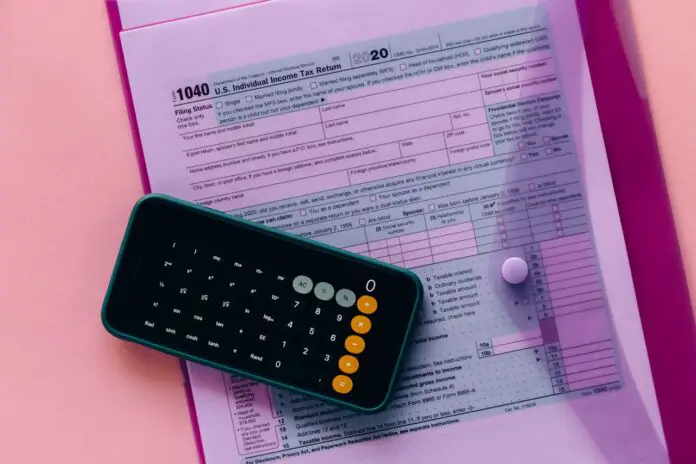Tax issues can be daunting and stressful, especially when they escalate to the point of a tax lien. A tax lien is a legal claim by the government against your property when you fail to pay a tax debt. It is essential to understand what a tax lien entails and how it can impact your financial health. Fortunately, there are ways to resolve tax liens and regain control of your finances. If you need help navigating this complex process, click here. In this article, we’ll delve into tax liens, their consequences, and the steps you can take to resolve them, including leveraging programs like the IRS Fresh Start Program.
What is a Tax Lien?
A tax lien is a legal claim that the government has against an individual’s property due to unpaid taxes. This can also include income and property taxes, which an individual or organization owes to the federal, state, or local government. If you are a debtor in terms of taxes, the government can proceed to attach or levy your property to recover the money owed. This lien guarantees the government will be paid back if you sell the property, borrow against it with a refinance, or, in the worst case, if it is sold through foreclosure.
Tax liens are part of public records that CRA can view, which can significantly impact your credit rating. A tax lien also reduces your chances of selling or refinancing your property since whoever you sell or offer the property to or whoever you approach for a loan will notice the lien and may opt not to proceed with the transaction.
The Consequences of Tax Liens
Tax liens negatively impact your financial position and your rights concerning your properties, as discussed below. First, they can severely affect your credit scores. Tax liens can appear on your credit report for up to seven years from when they are paid off; if they are not, they can remain indefinitely. Such a position can limit one’s chances of getting loans, credit cards, or rental housing.
Furthermore, a tax lien will stop you from selling or refinancing your property. Potential buyers will not have a chance to buy properties with a tax lien as most will run away from such properties, while most lenders will not provide financing options for properties under a lien. This can put you in a disadvantageous financial situation if you must tap the property’s equity or sell the property to answer a debt.
Steps to Resolve Tax Liens
Cancelling a tax lien involves a more assertive approach, and it is always recommended that one seeks to understand his/her rights. Here are some steps you can take to address and resolve a tax lien:
Pay the Tax Debt in Full: The most straightforward procedure to discharge a tax lien is to discharge the liability by paying the amount owed. Once the debt has been paid to the IRS or the respective government body, the lien is lifted, and one can request a Certificate of Release to confirm this. This is usually within 30 days after payment has been made concerning the order.
Set Up a Payment Plan: If you cannot pay the whole amount, you can discuss it with the IRS and agree to pay in instalments. It does not have to be paid off in full because the taxpayer can pay it in instalments as in an instalment agreement. The lien will stay in force until the debt is paid in full; however, the IRS often agrees to subordinate the lien, meaning other creditors can have priority. It can also help you borrow money or refinance your real estate.
Offer in Compromise: An Offer in Compromise (OIC) is the agreement between you and the IRS for less than the total amount you owe. It is also essential to show that you cannot afford to pay the total amount due, whether in a single sum or in installments. This means that the IRS will assess your ability to pay back the debt, income, expenses, and equity in the assets you own. If this offer is accepted, the lien will be removed when the conditions of the compromise have been satisfied.
Request a Lien Withdrawal: A petition against the lien can sometimes be filed. This does not mean the debt is erased, but it will remove the public Notice of Federal Tax Lien, which can improve one’s credit score. A withdrawal is only possible when you plan to pay the debt in full, enter the Direct Debit Installment Agreement, or provide evidence that withdrawal will help collect the tax debt.
Seek Professional Help: The issue of tax liens and the IRS can be a subject of confusion for many people. Consulting with a tax professional, including enrolled agents, tax attorneys, or certified public accountants, can go a long way as professionals represent you. They will assist you in knowing what is available for you, can represent you in the negotiations with the IRS, and guide you on the right course of action relating to the lien.
Conclusion
It is essential for anyone who has encountered or will encounter this challenge to fully understand what tax liens are and how they can be remedied. Tax liens are detrimental as they can affect credit rating, real estate, and finances in general. And though the lien is a means of repaying the debt, you can also consider the way out of the lien position, paying the amount in question, negotiating the payment plan, or seeking help from a professional financial consultant. Always remember that the best way to address this tax lien issue is to be proactive and get help from the right professionals to guide you through it.

